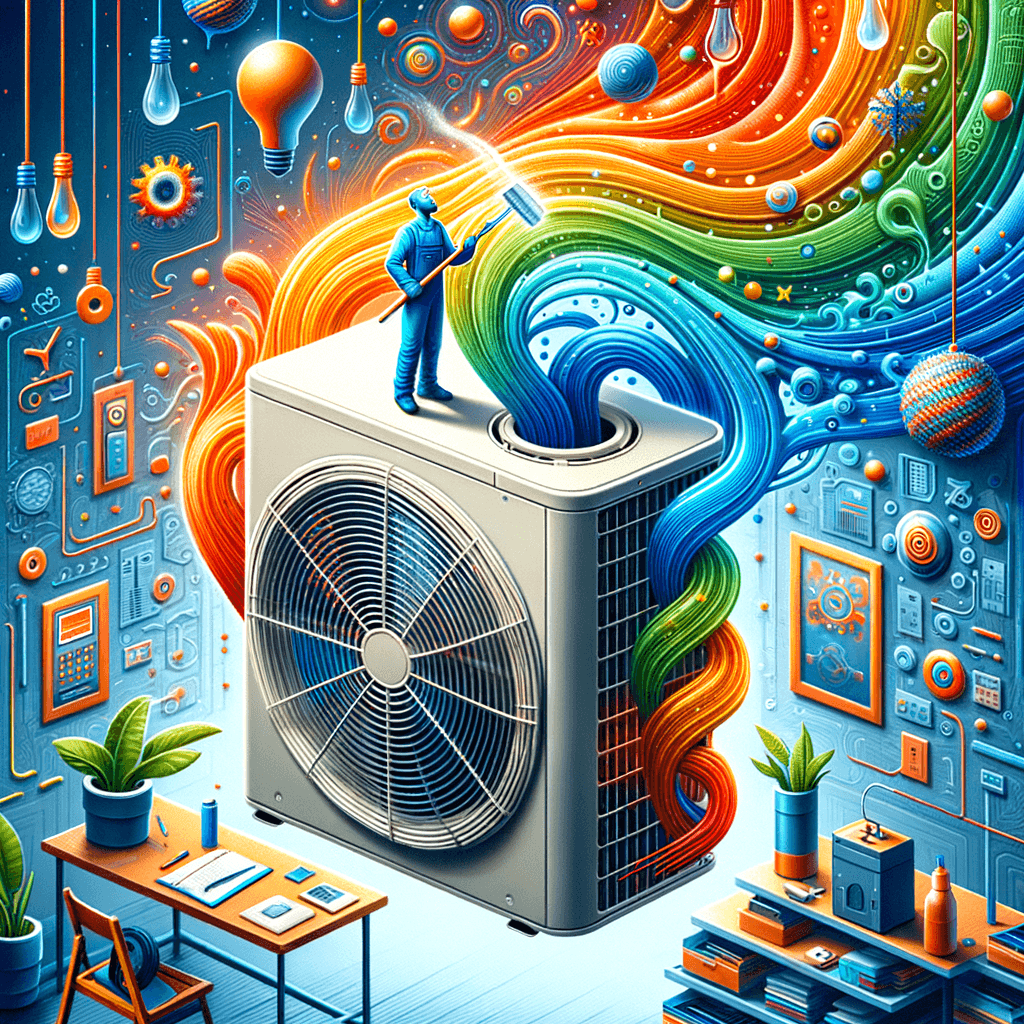
Mastering Air Conditioner Coil Maintenance: Unlocking Peak Efficiency and Longevity
By Total Care Air Conditioning Wed Nov 12 20257 minutes

Understanding the Critical Role of AC Coils
Evaporator and condenser coils are fundamental to the heat exchange process in air conditioning systems. When these coils become dirty or corroded, efficiency drops, operating costs rise, and system lifespan shortens. Many homeowners overlook coil maintenance, leading to avoidable breakdowns and discomfort during peak seasons.Types of Coils: Evaporator vs. Condenser
Each air conditioning unit contains two main types of coils, both essential for optimal function. The evaporator coil absorbs heat from indoor air, while the condenser coil releases it outdoors. Neglecting either can result in reduced cooling capacity, ice formation, or even compressor failure.- Evaporator Coil: Located inside the air handler or attached to the furnace, responsible for absorbing heat and humidity.
- Condenser Coil: Located in the outdoor unit, expels absorbed heat to the outside environment.
Symptoms of Neglected Coils: What to Watch For
Failing to maintain AC coils can manifest in various performance issues. Early detection helps prevent costly repairs and preserves energy efficiency. Recognizing these signs empowers homeowners to take timely action.- Reduced cooling output despite normal thermostat settings.
- Unusual hissing or bubbling noises from the unit.
- Ice accumulation on the indoor coil or refrigerant lines.
- Higher than usual energy bills without increased usage.
“A clean coil is the foundation of efficient air conditioning; neglect is the fastest route to system failure.”
Best Practices for Cleaning and Maintaining AC Coils
Proper coil maintenance involves more than just a visual inspection. Utilizing specialized tools and techniques ensures thorough cleaning and prevents accidental damage. Always disconnect power before servicing coils to avoid electrical hazards.- Use a soft-bristle brush or fin comb to gently remove surface debris.
- Apply a no-rinse foaming coil cleaner for deep cleaning, following manufacturer instructions.
- Rinse condenser coils with a gentle stream of water, avoiding high pressure to prevent fin damage.
- Schedule professional maintenance annually to inspect for corrosion, leaks, and airflow restrictions.
Common Mistakes to Avoid During Coil Maintenance
Even well-intentioned DIYers can make errors that compromise system performance. Avoid these pitfalls to protect your investment and ensure long-term reliability.- Using high-pressure water, which can bend delicate coil fins.
- Neglecting to check for mold or biological growth on the evaporator coil.
- Forgetting to reassemble protective panels securely after cleaning.
- Overlooking the importance of replacing clogged air filters regularly.
Cost-Benefit Analysis: Coil Maintenance vs. System Replacement
Regular coil maintenance extends the lifespan of your air conditioning system and reduces the likelihood of major component failures. Weighing the cost of preventive care against premature replacement highlights the value of routine attention.| Maintenance Action | Estimated Annual Cost | Potential Savings |
| DIY Coil Cleaning | $20-$50 | Up to 15% energy savings |
| Professional Coil Service | $100-$250 | Avoids $1,500+ in early replacement costs |
| Neglected Coils | $0 (short-term) | Higher bills, reduced lifespan |
FAQs: Addressing Homeowner Concerns About Coil Care
- How often should AC coils be cleaned?—At least once a year, or more often in dusty or humid environments.
- Can dirty coils cause refrigerant leaks?—Yes, by increasing system pressure and stressing components.
- Is coil cleaning safe for DIY?—Yes, with proper tools and safety precautions, but some tasks are best left to professionals.
Looking Ahead: Innovations in Coil Technology
Emerging coil technologies, such as antimicrobial coatings and self-cleaning surfaces, promise to reduce maintenance demands and improve indoor air quality. As manufacturers innovate, homeowners can expect more durable, efficient, and eco-friendly AC systems in the future.“The future of air conditioning lies in smarter, self-maintaining components that maximize comfort and sustainability.”